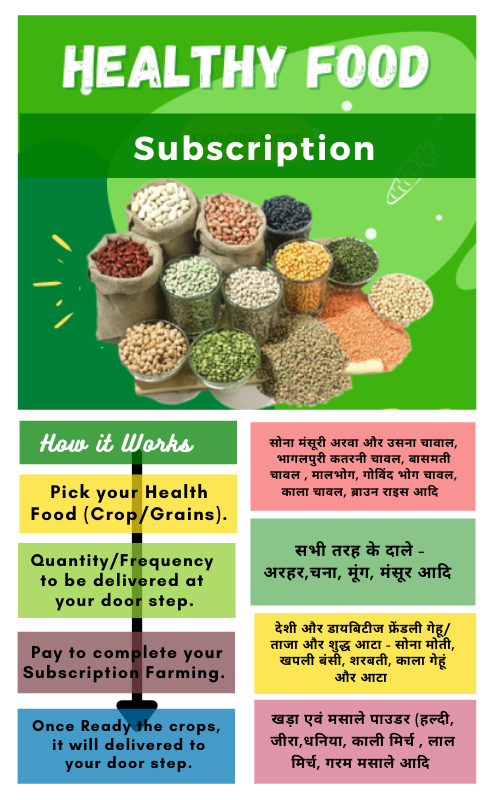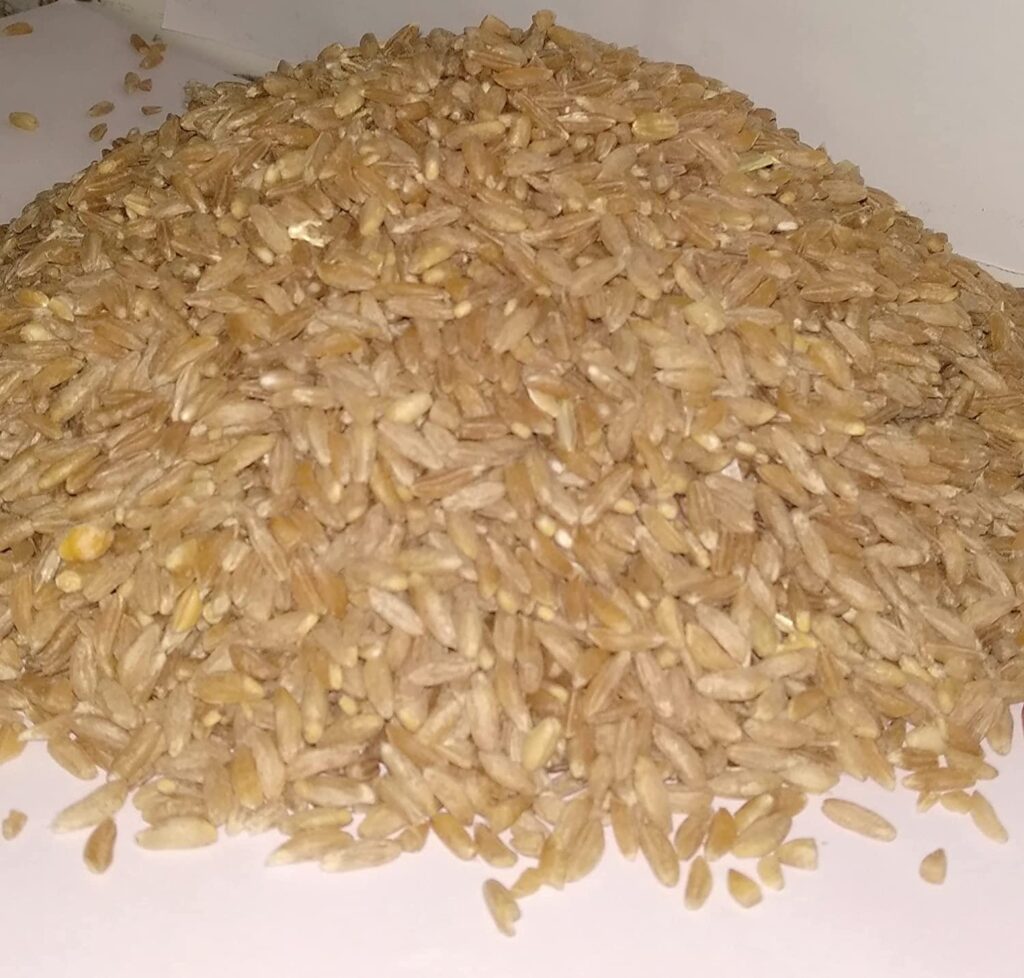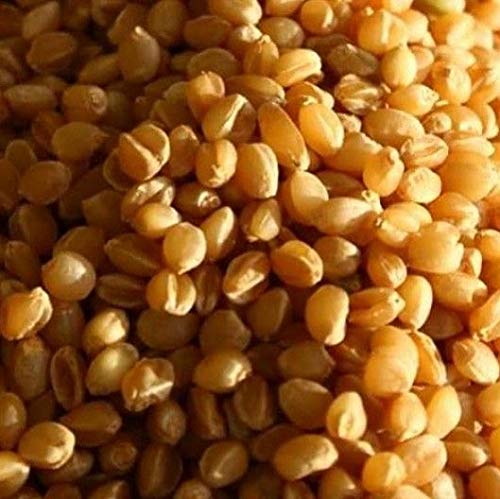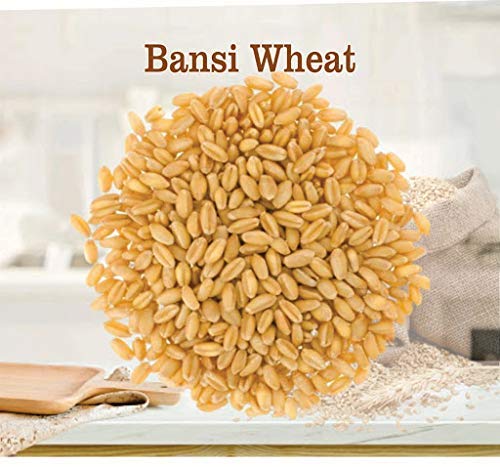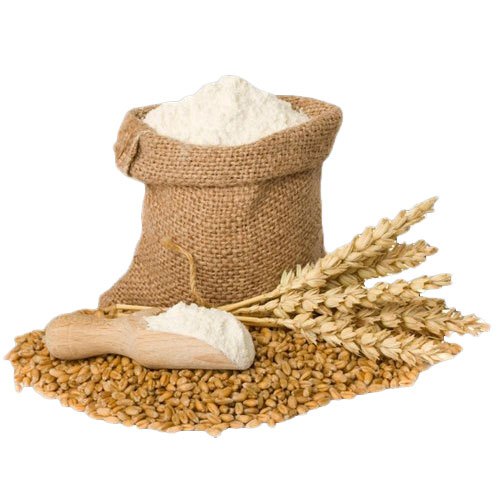Call us : 10 AM to 7 PM (Mon to Sat) : +91 75699 09218
Free shipping on all orders over ₹999/-
Healthy Food Subscription
Subscription Farming can be an entry point into more sustainable solutions.
VILLKART with Support of FutureFrming (www.futurefarming.co.in) initiated or inviting a Healthy Food (wheat/Rice/Pluses/Oil/Others) subscription-based farming solution to our exploited farming practices, we are introducing this model where people can subscribe to an agricultural land yearly as per their requirement.
Healthy Food means for Desi Variety & Pesticide free Natural Farming base Food Produce driving to the society to their doorstep.
We are focusing on ‘Desi/Paigambari wheat’ which is original Indian wheat grown around Indus Valley Civilization. The idea is that what makes up such a large part of our diet breakfast lunch dinner all contains wheat and wheat. People used to eat mixed grains like Bajra, Jowar, Barley and Maize and there were no gluten-related problems. First, we need to control our gluten consumption.
“This wheat is low in Gluten and Glycemic Index is 55 which makes it a ‘super food’ for gut health. If you’re considering limiting your gluten consumption, it’s going to solve gluten issues. Research now shows that excess of gluten and direct carbohydrate consumption without enough fibre is the main cause of type 2 diabetes, celiac disease, obesity, insulin resistance followed by thyroid BP etc.”
We can utilize our Farm resources in a way that they can grow this variety for your custom needs. This vanished because of low yield and high price. That was the main reason GMO wheat was introduced to increase yield.
If we can create a demand for this wonderful wheat we can rectify our green revolution mistake and can ensure the good health of our coming generations. Everyone should do their own research, it’s our health our responsibility. Agrochemical companies like “Monsanto” are not going to disclose these facts.
VILLKART Healthy Food Subscription Model is a direct collaboration with FARMERS where we are paying a lump sum as “shares” to help fund the farm’s efforts during the growing season. The idea is that the influx of money keeps the farm running, and once the farm harvests its crops, you get your money in the form of seasonal produce. Unlike picking and choosing from the options at a market stand, a farm “share” is like a subscription of whatever is seasonal. With this model, FARMERS will never be exploited to produce to increase their harvest or benefits, as they will be growing as per the subscriber’s need.
Ancient Wheat Flour
Indian Ancient Wheat Pearl shaped 4,500 years old, The oldest wheat cultivated in India, Paigambari traces its origins back to the Indus Valley Civilization. It is an excellent alternative to modern hybrid wheat and can be the best response to Gluten sensitivity, Wheat allergy & High blood sugar.
Nutritional Values
- Glycemic Index 55 | Low in Gluten
- High in Fibre | 40% more Protein
- 267% more Minerals | High level of Folic Acid
- Supports Gut Health and Boost the Immune System
Paigambari/Deshi Wheat (Original Indian Wheat)
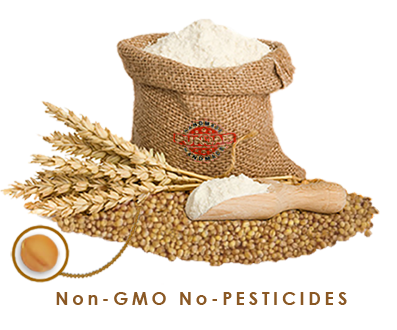
Paigambari/Deshi Wheat
Long before the Green Revolution, there were ancient varieties of wheat that were being grown in India for thousands of years. These varieties are almost extinct today due to the rampant use of hybrid and heigh yield wheat varieties.
Paighambari is one of the healthiest wheat known for Glycemic Index 55 and Low Gluten. The most amazing fact about paigambari is significantly High levels of Folic acid ¹. Normally, wheat has no folic acid and bread needs to be fortified with folic acid artificially. Similarly, It has nearly 267% more minerals and over 40% more Protein and Fat than other varieties. ‘Art of Living’ got tested the wheat samples of its nutrient values. The nutritional value of this ancient wheat compared with HD 2967, the commonly grown modern wheat variety, is as follows:

Wheat kernels are ‘round’ in shape as compared to ‘long oval’ hybrid wheat.
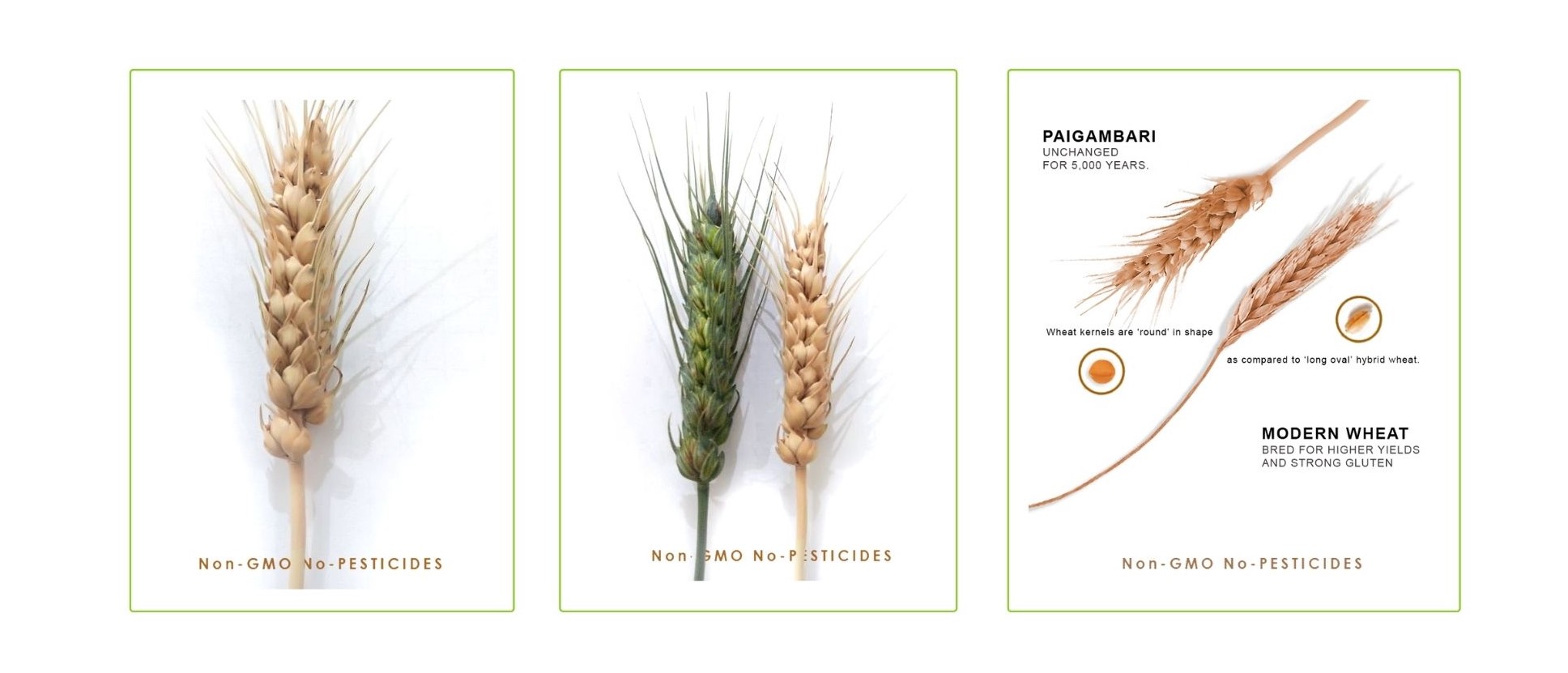
PAIGHAMBARI wheat is also known as Indian Dwarf Wheat, Gilgit Wheat, Multani, Rai Munir, Nikka, Sona Moti, Sugar-Free, Gundu Godi & Bol Gahu, Triticum sphearococcum probably originated from Bread Wheat (Triticum aestivum).
“This wheat is low in Gluten and Glycemic Index is 55 which makes it a ‘super food‘ for gut health. If you’re considering limiting your gluten consumption, its going to solve gluten issues. Research now shows that excess of gluten and direct carbohydrate consumption without enough fiber is the main cause of type 2 diabetes, celiac disease, obesity, insulin resistance followed by thyroid BP etc.” *
Owing to its drought tolerance, resistance to yellow rust, good yields, white flour and light taste, it was extensively cultivated in western districts of Punjab and Multan as well as parts of Central Provinces (Madhya Pradesh) & United Provinces (Uttar Pradesh). Henry Baden-Powell- Conservator of Forests of Punjab reported that Paighambari Wheat sold at 15% higher price than other varities in 1868.
¹ Folic acid is a B vitamin that can help prevent certain birth defects, including NTDs. Folic acid helps your body produce and maintain new cells, and also helps prevent changes to DNA that may lead to cancer. As a medication, folic acid is used to treat folic acid deficiency and certain types of anemia (lack of red blood cells) caused by folic acid deficiency.
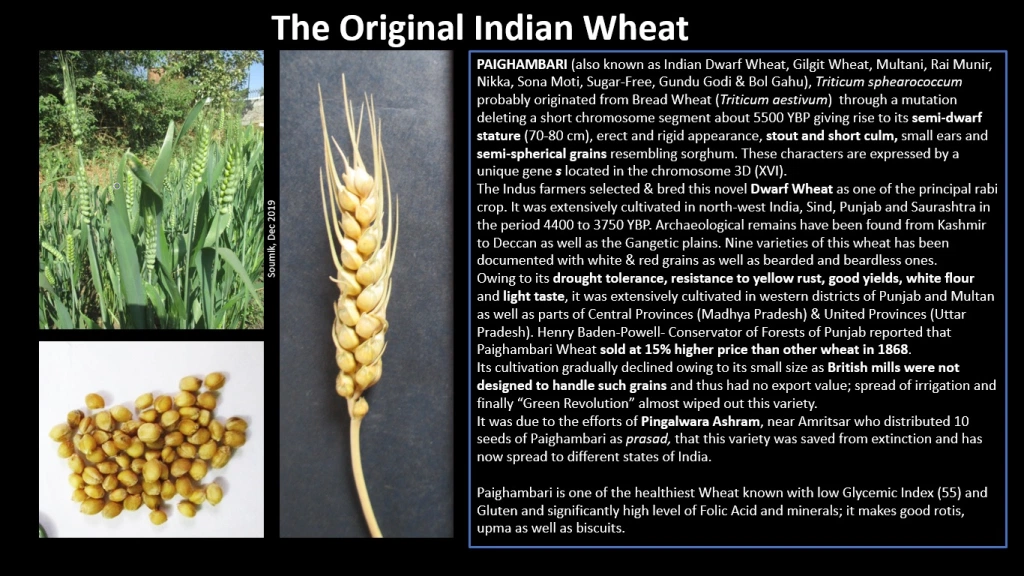
HISTORY
Ancient Wheat
 PAIGHAMBARI(also known as Indian Dwarf Wheat, Gilgit Wheat, Multani, Rai Munir, Nikka, Sona Moti, Sugar-Free, Gundu Godi & Bol Gahu), Triticum sphearococcum probably originated from Bread Wheat (Triticum aestivum) through a mutation deleting a short chromosome segment about 5500 YBP giving rise to its semi-dwarf stature (70-80 cm), erect and rigid appearance, stout and short culm, small ears and semi-spherical grains resembling sorghum. These characters are expressed by a unique gene s located in the chromosome 3D (XVI).
PAIGHAMBARI(also known as Indian Dwarf Wheat, Gilgit Wheat, Multani, Rai Munir, Nikka, Sona Moti, Sugar-Free, Gundu Godi & Bol Gahu), Triticum sphearococcum probably originated from Bread Wheat (Triticum aestivum) through a mutation deleting a short chromosome segment about 5500 YBP giving rise to its semi-dwarf stature (70-80 cm), erect and rigid appearance, stout and short culm, small ears and semi-spherical grains resembling sorghum. These characters are expressed by a unique gene s located in the chromosome 3D (XVI).
The Indus farmers selected & bred this novel Dwarf Wheat as one of the principal rabi crop. It was extensively cultivated in north-west India, Sind, Punjab and Saurashtra in the period 4400 to 3750 YBP. Archaeological remains have been found from Kashmir to Deccan as well as the Gangetic plains. Nine sub species of this wheat has been documented with white & red grains as well as bearded and beardless ones.
Owing to its drought tolerance, resistance to yellow rust, good yields, white flour and light taste, it was extensively cultivated in western districts of Punjab and Multan as well as parts of Central Provinces (Madhya Pradesh) & United Provinces (Uttar Pradesh). Henry Baden-Powell- Conservator of Forests of Punjab reported that Paighambari Wheat sold at 15% higher price than other wheat in 1868.
One of the Paigambari varieties (Beardless with amber grains- T sphearococcum-humboldti grown in Rawalpindi (now in Pakistan) was considered best for bread making.
Its cultivation gradually declined owing to its small size as British mills were not designed to handle such grains and thus had no export value; spread of irrigation and finally “Green Revolution” almost wiped out this variety. Paighambari is one of the healthiest Wheat known with low Glycemic Index (55) and Gluten and significantly high level of Folic Acid and minerals; it makes good rotis, upma as well as biscuits.
This variety has been saved from extinction due to the efforts of Pingalwara Charitable Society Amritsar who distributed 10 seed of Paigambari as prasad, from where the variety has been spread to different states of India.
Paigambari Farm is a wheat-oriented subscription-based farming solution. We are a group of agriculture enthusiasts and health conscious individuals growing natural non-gmo paigambari wheat. Paigambari Farm community was formed to protect and preserve the exceptional qualities of this ancient grain for the benefit of all those who are interested in high quality, healthy food. Our philosophy has been to preserve the variety without any kind of manipulations. If we can create a demand of this wonderful wheat we can survive ‘The Violence of the Green Revolution,’ and can ensure good health of coming generations.
HEALTH
The Greatest Wealth

What’s wrong with modern wheat?
Gluten, Thyroid and Celiac ¹Ancient Grains vs. Modern Wheat:
What’s the Difference?Why Glycemic Index is important and affect blood sugar level? Insulin and Type 2 DiabetesFood Contamination and Foodborne Illness, What is GMO?Lets simplify all these jargons
Harvesting and Sorting – Grown in India’s bread-basket state Punjab. Traditional harvesting starts during mid April. Our 12×6 foot raised beds was filled with tall, slender wheat sheaths that turned progressively more golden brown. The seed heads began to nod, and that’s when we knew it was time. Here’s how we hand harvest our patch of paigambari wheat.
The glycemic index (GI) is a scale that ranks a carbohydrate containing food or drink by how much it raises blood sugar levels after it is eaten or drank. Foods with a high GI increase blood sugar higher and faster than foods with a Iow GI.
What does the number mean? The number is a comparison between individual foods and a sugar called glucose. Glucose is given a value of 100. If the test food is assigned a value below 100, that food is expected to impact your blood sugar less than glucose. If the test food is assigned a value over 100, that food is expected impact your blood sugar more than glucose.
“DID YOU KNOW? Many people committed to lowering their sugar intake are still eating “healthful” wheat products such as wheat roti and bread even though one teaspoon of table sugar has a glycemic index of 59, while a slice of whole-wheat bread and one roti has a glycemic index of 72!”
“Eating foods that cause rapid increases in blood sugar triggers the rapid release of insulin. This causes your blood sugar to lower quickly, which results in hunger, sleepiness and the desire to eat again,” says Lauri Ek-Watson, clinical nutrition manager at Providence Alaska Medical Center. “Studies suggest that if this persists for years, you have higher post-meal blood sugar and excessive insulin secretion. This can contribute to obesity, irreversible Type 2 diabetes, heart disease and gall bladder disease.”
After you eat a bowl of cooked rice or a piece of bread made of wheat, the glucose in your blood skyrockets within 15 minutes, which is not good for our system. But when there is sufficient fiber in grains, the body can naturally control the blood sugar levels. (Its like now body has to work more to extract glucose from fiber to release it in blood, it takes time which means more time and consistent release of glucose/energy). Hence there is sustained release of glucose in our body when we eat grains with good fiber content. Fiber help not only in maintaining the glucose at its optimum levels but also in retaining this balance throughout the day.
Eating food without fiber is like giving yourself a direct shot of glucose injection and releasing it instantly into blood, contrast to good amount of fiber which releases glucose/energy slow and steady throughout the day into your system.
Carbohydrates without fiber, food without soul: When we eat rice and wheat that’s rich in carbs, the restricted release of glucose after digestion that happens with fiber cover, is now missing. Now the burden of controlling this overwhelming levels of glucose released after a meal, is on our body. It works overtime to manage this excess glucose, by converting it into glycogen and try glycerides. This is the reason, rather than feeling energetic, we feel tired after eating. All the energy that’s produced is used up in managing excess glucose. Most glycogen is stored in the liver and in muscle cells. When these and other body cells are saturated with glycogen, excess glucose is converted to fat and is stored as fat in adipose tissues.
Celiac disease is an autoimmune disorder that causes genetically susceptible individuals to negatively respond to gluten, a protein found in wheat, barley, and rye. Over time, as gluten triggers immune responses, the small intestine’s lining becomes damaged. Without a diagnosis and appropriate treatment, it is likely that individuals with celiac disease will suffer from malabsorption, the inability for the small intestine to absorb nutrients into the bloodstream.
It’s wheat—or what we are being sold that is called “wheat.”. Modern wheat is no more real wheat than a chimpanzee is an approximation of a human. 🙂
Excess glucose intake in the form of sugar, rice, wheat is the root cause of almost all chronic diseases we come across these days. High blood pressure, diabetes, thyroid, migraine, asthma, arthritis, and cancer have been growing rapidly in last few decades. According to Dr. Khadar, 125 years ago there used to be one diabetic in one million people. But today there are 28 diabetics in every 100 population.
With excess glucose in the body the glycogen and glycerides get deposited on different organs. The liver can store up to 100 gm of glucose in the form of glycogen. Muscles can store approximately 500 gm of glycogen. Because of the limited storage areas, any carbohydrates that are consumed beyond the storage capacity are converted to and stored as fat. This causes accumulation in passageways, blocks in heart, colon, kidney, liver, and other organs.
Type 2 diabetes mellitus (T2DM) is a chronic condition characterized by excessive glucose levels resulting from insulin resistance and/or decreased insulin secretion. Despite ongoing traditional medicinal therapies with all participants, a positive impact of consuming ancient grains products was observed on blood insulin, glucose, and insulin resistance. In addition, there was a significant decrease in risk factors of T2DM patient vascular complications such as total cholesterol, LDL-cholesterol, inflammation indicating cytokines, and a significant increase of antioxidant effects.
Obesity, diabetes, high blood pressure, heart disease. I find one of the main causes for these problems is the high sugar, high carbohydrate diet, which is why a lot of writers these days are saying we should be eating meat and dairy and lots of vegetables. I don’t totally agree with that, I agree with their science, that we have to drop those carbs, but I think you can do it incredibly more effectively and efficiently doing it vegetarian. What comes not far behind these is depression and panic attacks. Even though these are mental problems or problems that happen in the mind, they too benefit from the changes in the diet.
Genetic modification of plants is humanity’s oldest and best trick. Eurasians had it easy when it came to cultivating wheat – its original form was pretty close to its present cultivated one Genetically modified wheat has mysteriously turned up around green revolution, and while there’s no evidence that the crop is in the food supply, experts say it would be safe to consume.
The most strain of wheat found around the world was developed by the biotechnology company Monsanto, officials confirmed. The finding was a surprise because as far as anyone knew, GM wheat has never been grown anywhere in the world outside of experiments. While other GM crops have been approved for cultivation, GM wheat has not.
Following the announcement, Japan and South Korea suspended some imports of U.S. wheat, and the European Union said it was testing U.S. wheat shipments to make sure they did not contain GM wheat. Years ago, Monsanto did research on GM wheat, but the company ended its tests in 2005, without bringing the crop to market.
The process of genetic engineering that brings about GMO food does seem suspicious. DNA strands are cultured in a bacterium and inserted into the host plant’s nucleus using a virus. “Bacterium” and “virus” are not the kinds of things people want associated with their food. The knee-jerk reaction to say “GMOs are bad” is thus natural and understandable. Natural and understandable as suspicions about GMOs’ effects on human health may be, it is completely unfounded.
The changes in the genetics of wheat since 1960, such as that of high-yielding dwarf strains, could conceivably account for the recent increased incidence of type 1 diabetes. Its appearance coincides with the increase in celiac disease and other diseases. One clear-cut connection stands out: Children with celiac disease are ten times more likely to develop type 1 diabetes; children with type 1 diabetes are ten to twenty times more likely to have antibodies to wheat and/or have celiac disease.
The two conditions share fates with much higher likelihood than chance alone would explain. The cozy relationship of type 1 diabetes and celiac disease also increases over time. While some diabetic children show evidence for celiac disease when diabetes is first diagnosed, more will show celiac signs over the ensuing years.
If you are among those with a powerful potential for wheat addiction, you should be careful with what kind of wheat variety you use. Because they are rich in carbohydrates but poor or null in fiber, they also increase blood sugar flagrantly. Oatmeal, for instance, whether “stoneground,” Irish, or slow-cooked, will cause blood sugar to skyrocket. No diet should be dominated by any of these grains, nor do you need them.
Our body cannot digest fiber, but it provides health benefits, including lowering your risk for high cholesterol, heart disease, diabetes and constipation. Fiber in grains is like a cleaning brush that absorbs and creates bulk waste, making the elimination process easy. It purifies the blood; liver; kidneys; lungs and other organs and all the passageways inside. Instead of refined grains that lack fiber and other nutrients, it’s a good idea to include positive grains in our daily diet. Ancient pigambari wheat is low in Gluten and rich in Fiber, Protein, Minerals and Folic acid. Normally, wheat has no folic acid and bread needs to be fortified with folic acid artificially.
Folic acid is a B vitamin that can help prevent certain birth defects, including NTDs. Folic acid helps your body produce and maintain new cells, and also helps prevent changes to DNA that may lead to cancer. As a medication, folic acid is used to treat folic acid deficiency and certain types of anemia (lack of red blood cells) caused by folic acid deficiency. Similarly, Paigambari has nearly 267% more minerals and over 40% more protein and fat than other varieties.
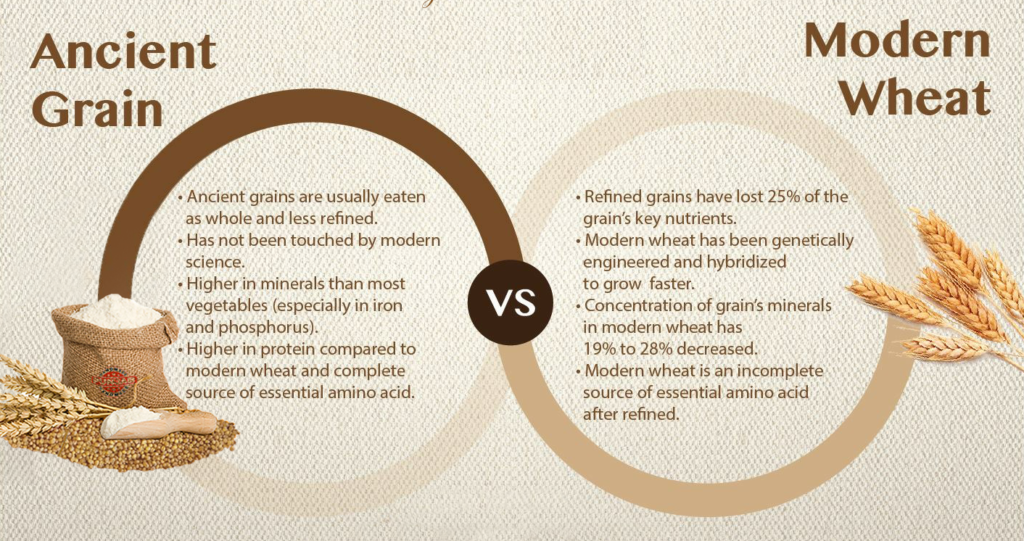
Start Now - Health Change in Your Life
If You Demand We can Grow. ❦
From Futurefarming Farms to You, we are uncompromising in our standards of care, authenticity, purity and quality. We are a group of agriculture enthusiasts and health conscious individuals growing natural non-gmo paigambari/Deshi wheat. Futurefarming Farms community (FFC) was formed to protect and preserve the exceptional qualities of this ancient grain for the benefit of all those who are interested in high quality, healthy food.
Please send us an email about your requirement. This will sign you up for our waitlist. When we can serve you with the same approach to quality, we will be in touch immediately. We look forward to welcoming you to the Futurefarming Farms Community. With Health and Good Wishes.
- Try Ancient Wheat Flour direct from the fields! Pre-Order
- Have a farmer grow something healthy especially for your family!
- You get to know your farmer and where your wheat comes from.
- Subscribe a seasonal Farm for your naturally grown ancient wheat.
“Food and medicine are not two different things: they are the front and back of one body.”― Masanobu Fukuoka, The One-Straw Revolution
Part 1 - DNA and The True Cause of Disease
We say so many times: My immune system is down. But what is our immune system? Let’s find out what it is and how to keep it functioning optimally. Obesity, diabetes, high blood pressure, heart disease. I find one of the main causes for these problems is the high sugar, high carbohydrate diet, which is why a lot of writers these days are saying we should be eating meat and dairy and lots of vegetables. I don’t totally agree with that, I agree with their science, that we have to drop those carbs, but I think you can do it incredibly more effectively and efficiently doing it vegetarian. What comes not far behind these is depression and panic attacks. Even though these are mental problems or problems that happen in the mind, they too benefit from the changes in the diet.
Empowering the Immune System...
We say so many times: My immune system is down. But what is our immune system? Let’s find out what it is and how to keep it functioning optimally. Obesity, diabetes, high blood pressure, heart disease. I find one of the main causes for these problems is the high sugar, high carbohydrate diet, which is why a lot of writers these days are saying we should be eating meat and dairy and lots of vegetables. I don’t totally agree with that, I agree with their science, that we have to drop those carbs, but I think you can do it incredibly more effectively and efficiently doing it vegetarian. What comes not far behind these is depression and panic attacks. Even though these are mental problems or problems that happen in the mind, they too benefit from the changes in the diet.
Cancer Causes & Treatment...
What is cancer exactly? Knowing what it actually is will help us to find the way to treat it.
The body is not given the right conditions to function properly and giving the body the right conditions, I have seen profound results and I have seen real turnarounds. The turnaround depends on a couple of things – how long the body has been given the wrong conditions and how diligent the person is in doing what they must do in order to get a turnaround.
Meet the Millet Man of India ...
Dr.Khadar Valli – He has achieved sort of demi-god status today due to his techniques of using Kadu Krushi/Jungle Farming as an alternative to Organic Farming. At the same time, the number of people who have been healed following his medicinal advise using Positive grains/Rich grains or most popularly siridhanya has made him a well-known name in not just India but worldwide among Indian sub-continent community.Dr. Khadar Vali has brought forth the eternal truth behind keeping good health by doing intensive research for many years (towards finding a lasting solution for many modern illnesses) after being deeply disturbed by the cause of modern diseases and resolving to find sustainable solutions for them. The consumption of coarse (fibrous) cereals like Foxtail millet, Browntop millet, Little millet, Barnyard millet, Kodo millet, etc. in the past before the use of rice and wheat was the reason why many people were not affected with diabetes. But, in the present times, eating fibreless paddy rice and wheat has led to an increase in lifestyle diseases like diabetes, cancer and many heart-related problems.
Malda Mango
In stock
Our Satisfied Customers
Loyal customers, don’t just come back, they don’t simply recommend you, they insist that their friends do business with you.
Why VILLKART ?
We believe in easy access to things that are good for our mind, body and spirit. With a clever offering, superb support and a secure checkout you’re in good hands.
Free Delivery
On all orders above ₹999/-
Quality Assurance !
Offered in the country of usage
Online Discount
+ additional multi-buy discount
100% Secure Checkout
UPI/ Net Banking / Debit & Credit Card

